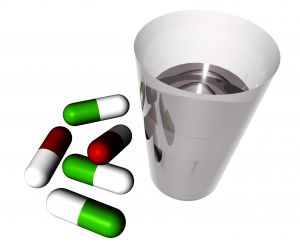The job of a compounding pharmacy is pharmaceutical compounding, which essentially means creating a specific pharmaceutical product in order to meet the medical needs of a specific patient. The industry’s initial role was to combine or to process appropriate ingredients in order to meet a medical need. For example, if a patient required a specific dose or combination of medications, if flavors needed to be added to a drug, or if medication needed to be changed from a solid to a liquid, a compounding pharmacy would do this job. 
Compounding pharmacies, when they first began, operated on a relatively small scale. A doctor might prescribe a specific drug to a patient that did not already exist in the specific necessary form or dose. The compounding pharmacy met that need. This was especially common for parenteral medications or intravenous medications.
The industry, however, evolved over time into something much different than a small pharmacy meeting the needs of specific patients. Unfortunately, our Boston defective drug attorneys know that the regulatory system did not evolve with the industry. As a result, compounding pharmacies weren’t properly regulated, pharmacies got negligent or careless, and people started dying.
Compounding Pharmacy Problems
As the number of medications grew and as drug shortages and rising costs started to become problems, compounding pharmacies morphed from small retail or boutique pharmacies to major manufacturing operations. Instead of just mixing drugs for specific patients or to meet a specific need, compounding pharmacies started to manufacture drugs on a massive scale and to sell those drugs across state lines. The compounding pharmacies weren’t pharmacies at all but were drug manufacturers by another name.
Unfortunately, the regulations didn’t change as compounding pharmacies did. The pharmacies were originally regulated by state boards responsible for overseeing pharmacies. The Food and Drug Administration (FDA), which regulates drug manufacturers, didn’t have authority over the compounding pharmacies. State boards, however, also didn’t really have any control over the major compounding manufacturers who were producing drugs on a massive scale. Further, state pharmacy boards weren’t really qualified to handle regulating and overseeing these massive drug manufacturers.
The result of this was that no one was really watching what was going on in these compounding pharmacies. Some Democratic lawmakers tried to change that in 2007 but weren’t successful and compounding pharmacies just continued to produce drugs with little oversight.
Then, however, the problems started. According to the American Society of Health-System Pharmacists:
- Five patients developed an eye infection after being administered bevacizumab that Clinical Specialties Compounding Pharmacy had repackaged.
- More than 50 people died and another 700 or so were injured when New England Compounding Center sent out drugs to more than 20 different states that had been contaminated with a fungus.
- A compounding pharmacy called Med Prep Consulting sent out 50-mL bags of magnesium sulfate in a five percent dextrose injection that contained mold. Fortunately, an employee at the Connecticut hospital that received the drugs noticed the mold floating at the top.
These problems will be just the tip of the iceberg if someone doesn’t step up and start overseeing what compounding pharmacies are doing. The Senate has introduced another bill to vest authority in the FDA, but it is not yet clear if this bill will actually pass or if compounding pharmacies will be free to continue wrecking havoc on unsuspecting patients.
If you were harmed by a defective drug or medical product in Massachusetts, call Jeffrey Glassman Injury Lawyers for a free and confidential appointment — (617) 777-7777.
Additional Resources:
Latest Updates on Careless New England Compounding Facility, Boston Personal Injury Attorney Blog, January 16, 2013.
 Boston Personal Injury Attorney Blog
Boston Personal Injury Attorney Blog

